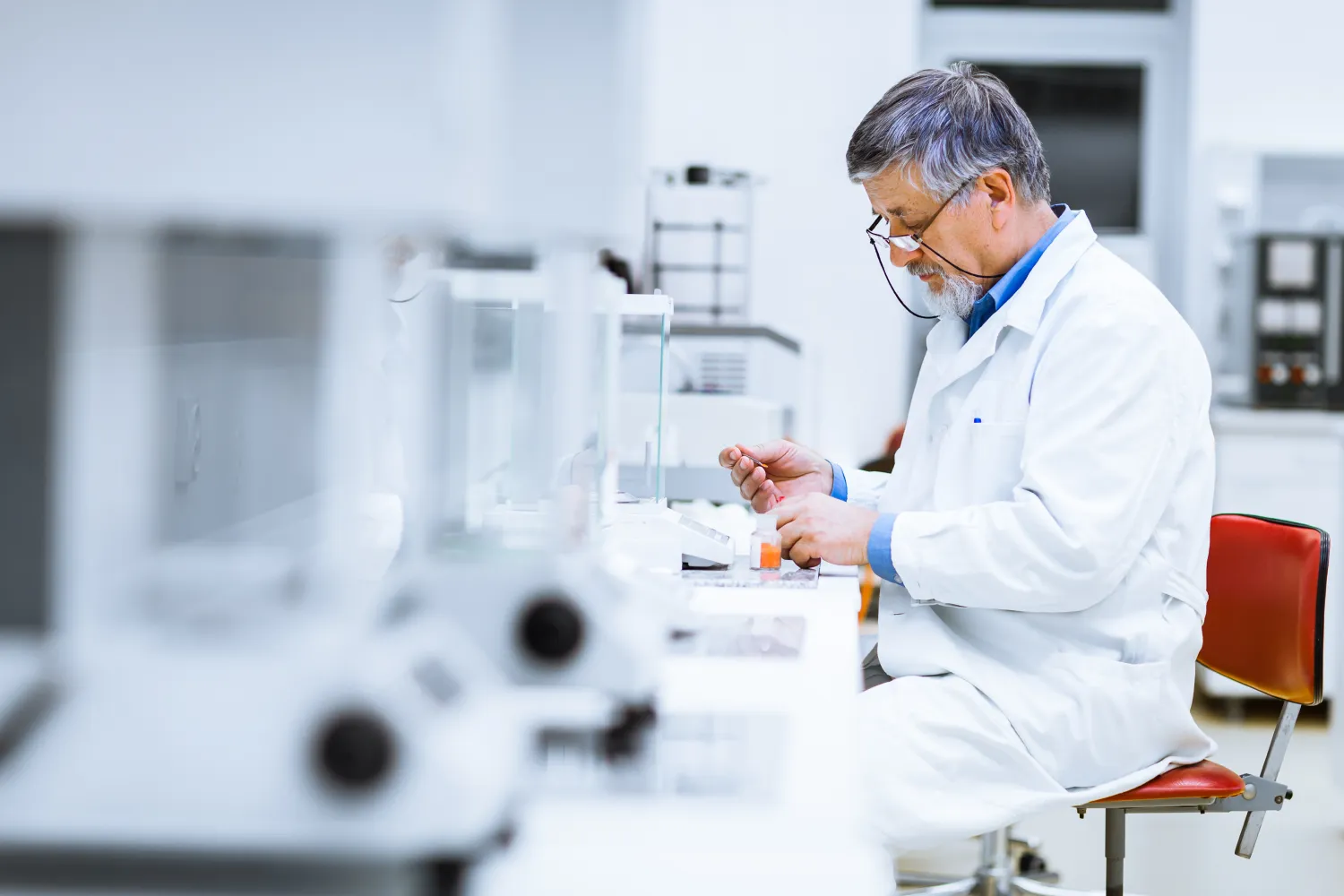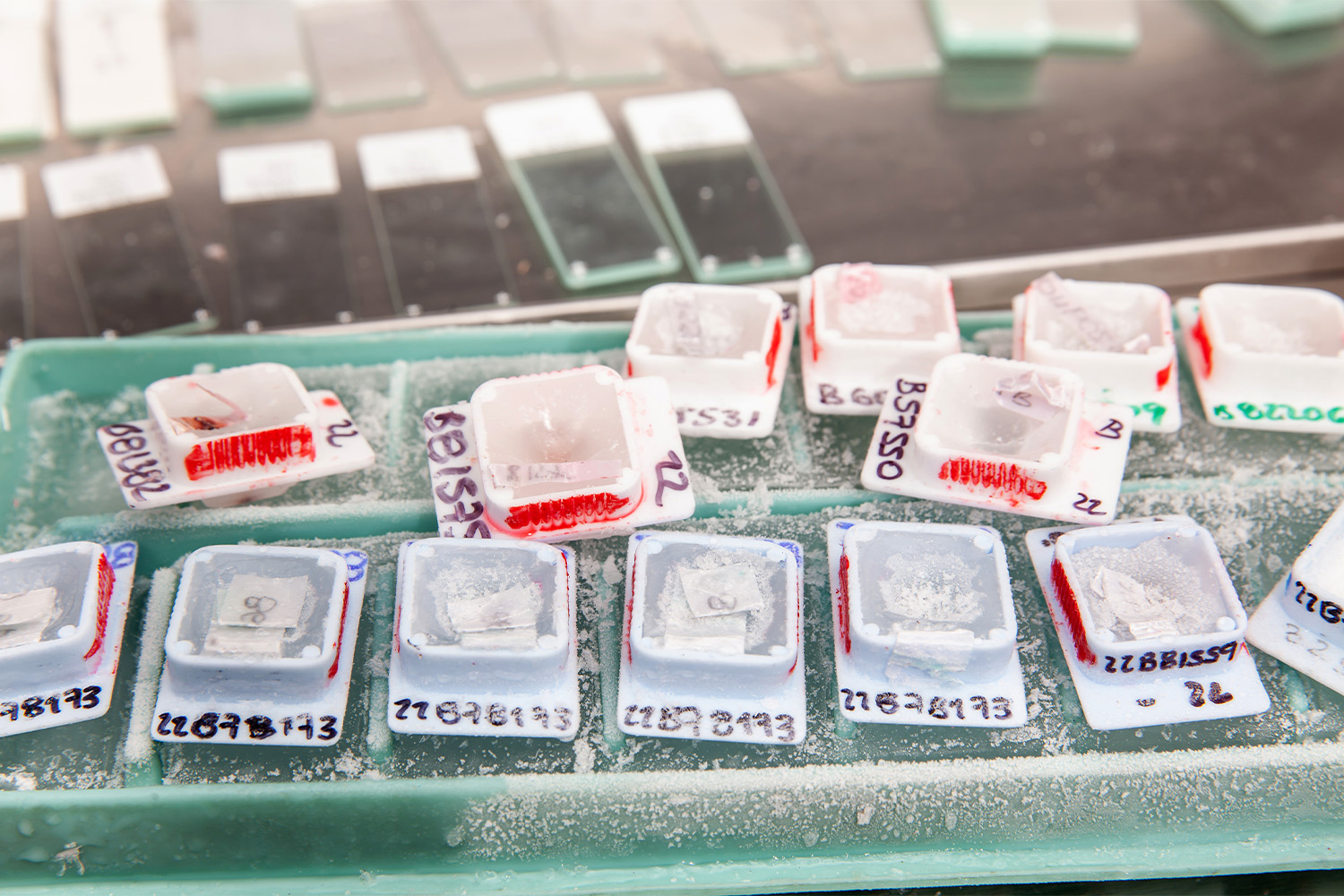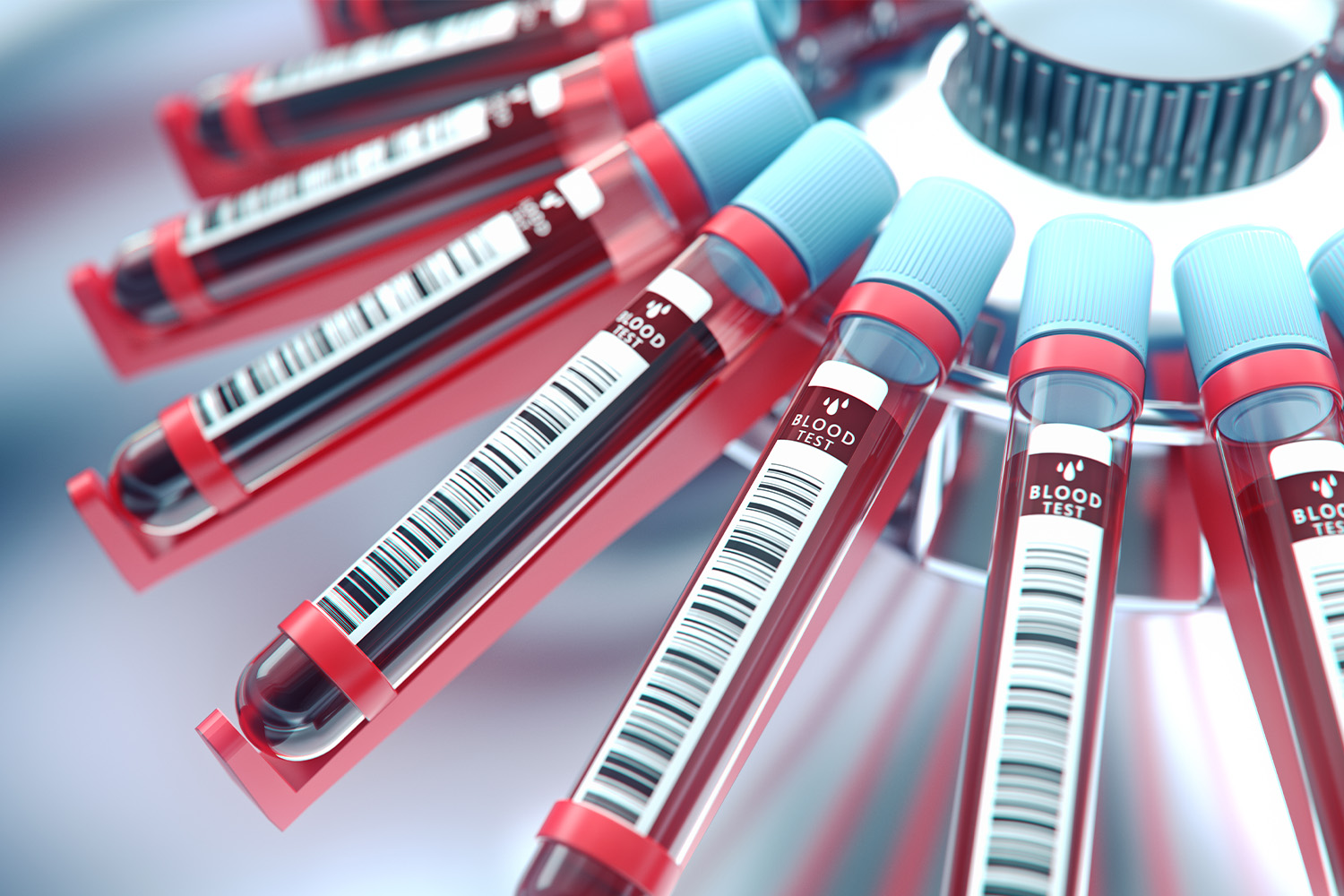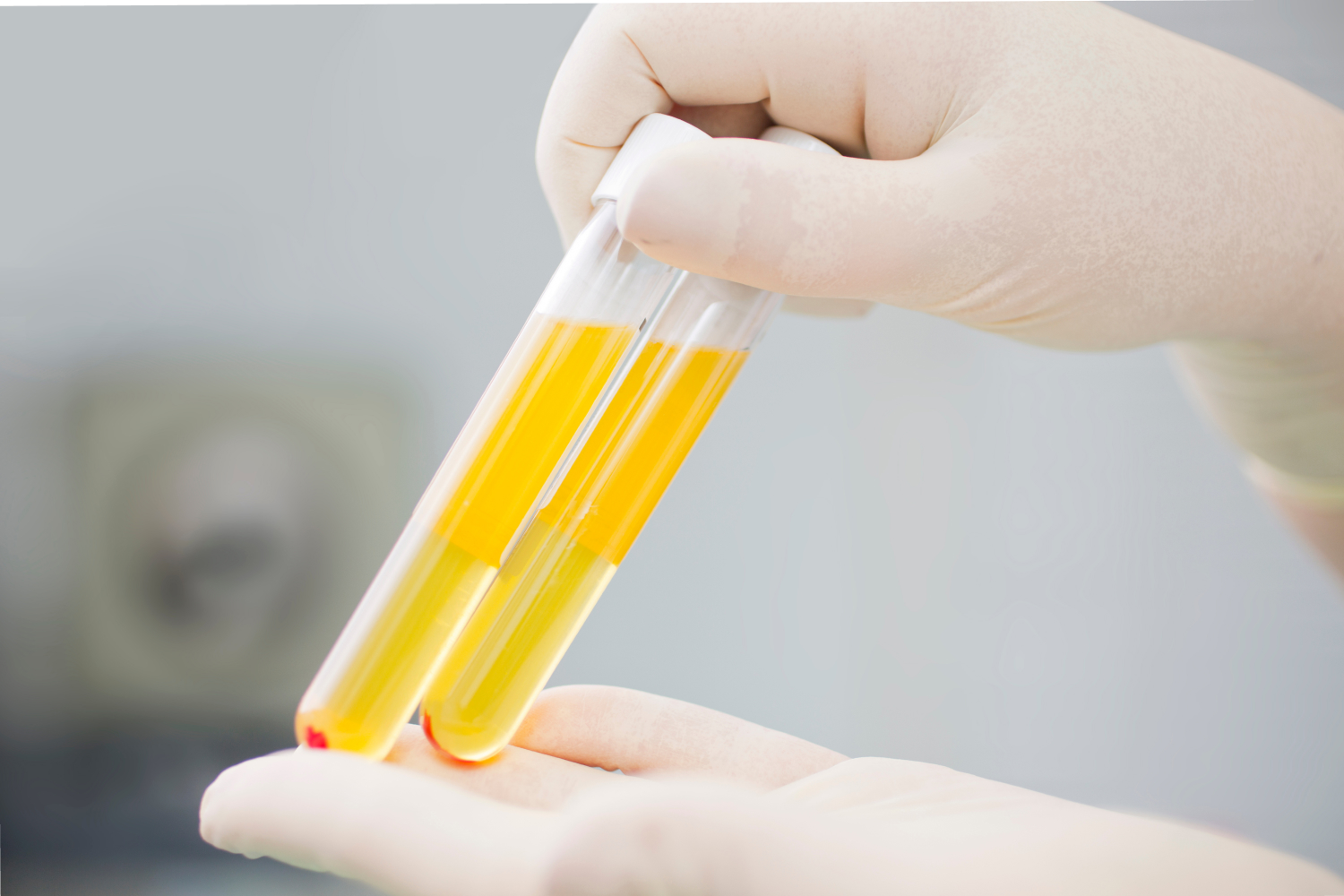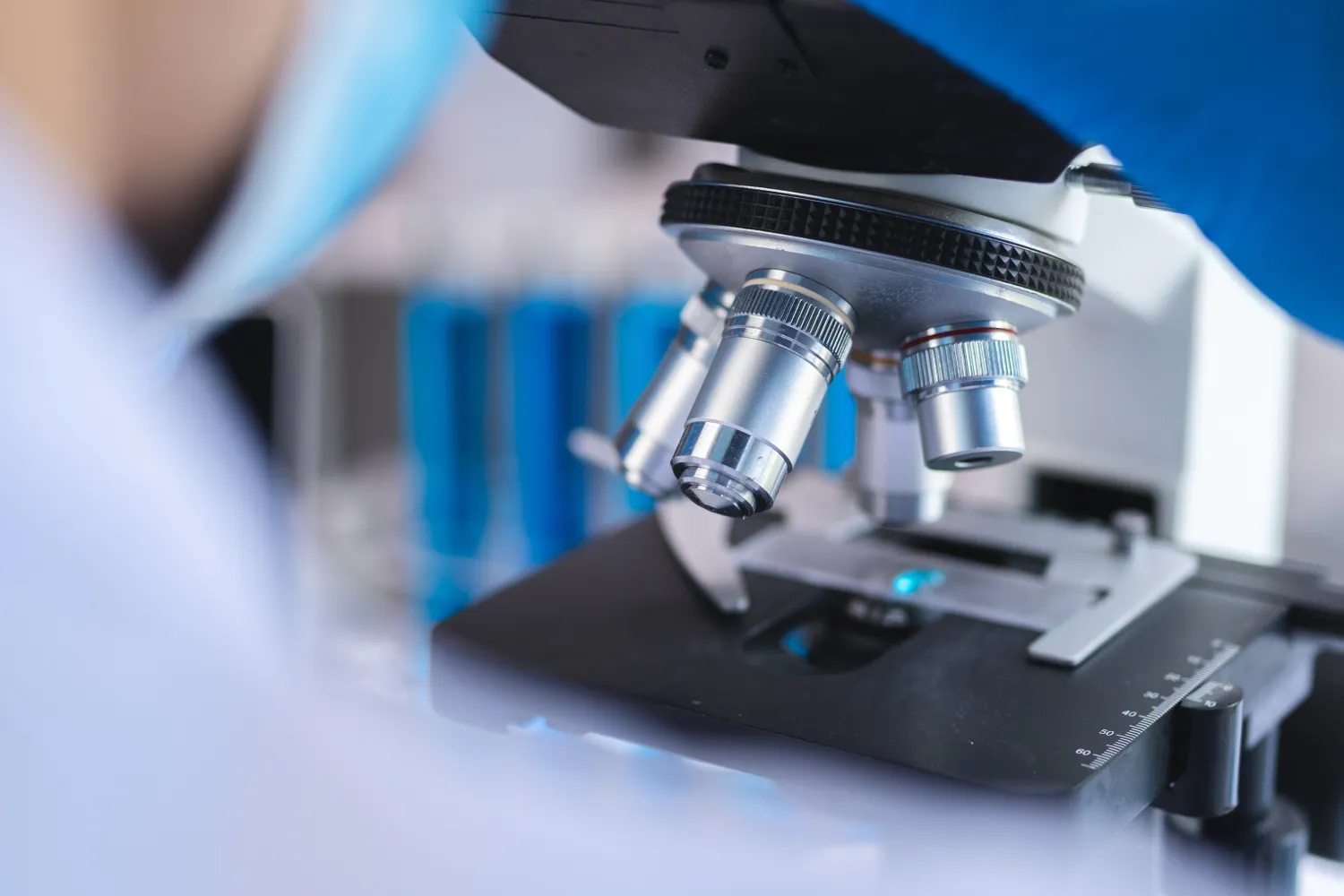Choosing the right biorepository partner can make all the difference in determining a clinical trial’s success.
Tissue samples continue to become more critical biological materials in bioinformatics, healthcare, and biomedical research studies using formalin-fixed, paraffin-embedded, fresh, and flash-frozen tissues available from an increasing number of biobank and biorepository organizations.
A recent survey of researchers funded by the National Cancer Institute (NCI) found that a lack of high-quality biospecimens resulted in 81% limiting the scope of their research. Biorepositories can be essential partners for researchers in epidemiology, genomics, pediatric oncology, and other fields.
What Is a Biorepository?
“Biorepository” refers to the infrastructure that houses, stores, and distributes biospecimens or tissue samples. High-quality biorepositories optimize the collection, labeling, processing, storage, and shipment of these tissues while maintaining a financially viable biobanking operation.
There is an ever-increasing demand for quality biospecimens in medical and research settings.
The distinction between these settings has increasingly been becoming blurred for years as the importance of biomarkers and other personalized medicine techniques gain popularity. The prominence of identifying biomarkers is critical in effectively diagnosing and treating numerous diseases, such as cancer.
Questions To Consider When Choosing a Biorepository
Finding the right tissue provider or biorepository partner can take time and effort, especially for demanding research endeavors. Company history and reputation, accreditation, shipping processes, and networking capabilities are a few of the most important factors influencing a decision to use one partner over another.
Below we will discuss precisely how to decide on the right biorepository partner for any research need.
What Is the Biorepository’s History?
A biorepository’s company profile can be the first indicator of a positive reputation when selecting a potential partner for sourcing biospecimens.
Like other well-established business suppliers, you will want to look for a biorepository company with a well-established history and experience in the specific area of biospecimen research you are looking for. Finding a company with extensive knowledge and experience in your field can help streamline the research experience and save time and money.
Additionally, you should consider the size and scope of the company’s biospecimen acquisition capabilities. Larger biorepositories may be able to source more specimens in more significant quantities for a lower cost due to supply chain and networking advantages over a greater geographical area.
On the other hand, smaller biorepositories may be able to tailor more individualized biospecimens. Ultimately, the right decision will depend on your research goals.
Reputation and size, while important, aren’t the only considerations when choosing a biorepository partner. Accreditation and certifications are essential to a quality partner as well. The American Association of Tissue Banks (AATB) is one example of an international accrediting body that ensures biospecimen acquisition, storage, and shipping is handled correctly, which includes adequate facilities such as freezers and liquid nitrogen supply.
Outside of the United States, there are other external accrediting bodies, such as the Human Tissue Authority (HTA) in the United Kingdom.
In addition, laboratories that handle biospecimens should be internally certified as a tissue providers by the Clinical Laboratory Improvement Amendments (CLIA). This certification ensures a laboratory meets accurate and precise laboratory standards through periodic self-assessment and documentation. Both internal and external accreditation and certification are vital to choosing the right biorepository partner.
Does the Biorepository Adhere to Patient Protection?
Patient protection is an often-overlooked component of a quality biorepository. Partnering with a biorepository that does not take legal and ethical requirements into account can spell disaster for your research.
Biorepositories commonly have oversight from an institutional review board (IRB). Process compliance from an IRB ensures patient care and rights, such as the informed consent process and confidentiality of patients’ medical information under HIPPA permissions.
These safety measures are in place to secure public health and mitigate the risk factors inherent in the research and obtaining clinical data. The inability to perform these basic patient protection measures can result in the revocation of biorepository privileges, potentially jeopardizing a research effort.
Regarding patient confidentiality, biorepositories must strictly adhere to the Health Insurance Portability and Accountability Act (HIPAA). If not handled carefully, patient identifiers with biological sample collections can result in serious noncompliance for the biorepository.
This particular aspect of confidentiality can be complicated because some protocols require deidentifying data for research purposes, so knowing how a biorepository handles confidential information is essential.
What Kind of Samples Can They Provide?
Biorepositories may specialize in a vast array of different tissue types or specimen collections. Where these tissues are obtained can vary widely, however. Samples may be obtained from simple hospital or cadaver donation, and sometimes they may come from a process known as custom procurement on an individual request basis.
Tissues and proteins are most commonly found in large quantities from medical donations. These tissues can be invaluable when large numbers of the same tissue need to be analyzed to investigate disease variability among diseased patients or the frequency of a specific biomarker in tumor cells.
Larger biorepositories tend to be better sources of these tissues due to their size and ability to source them in large quantities.
On the other hand, if your research has very specific or rigorous requirements, smaller biorepositories can help find suitable tissue material for the undertaking. A vast, sometimes a global network of biorepositories can be even more useful when working with clinical research organizations (CROs) that can coordinate a complicated acquisition.
Other questions to ask potential partners include specific donor criteria that may affect the sample, such as body mass index (BMI), sex, and age. Typically, being able to source biospecimens from various donor demographics will produce favorable, genuinely representative samples.
Furthermore, biorepositories should be able to estimate turn-around times from surgery to biospecimen collection and processing if obtaining a prospective sample.
Ultimately, sample availability should take precedence over any other biorepository partner factor. If the samples cannot be sourced, favorable quotes and shipping times do not matter. Once again, CROs can be indispensable resources with years of experience and networking knowledge to steer you toward the right biorepository partner.
What Does the Shipping and Logistical Process Look Like?
Understanding a potential biorepository partner’s shipping and tracking process beforehand can save you a lot of time and effort after sourcing the right tissue sample for your research. While not the most exciting element of choosing a partner, it is critical that your tissue samples are stored, shipped, and tracked appropriately.
Shipping can be performed in several different ways, depending on the type of tissue being shipped. Formalin-fixed paraffin-embedded (FFPE) tissues can be easily imported in large quantities due to their stability at ambient temperatures and relatively low shipping weight and space requirements.
On the other hand, some tissues must be fresh or flash-frozen, which will require frozen shipment techniques and additional concern for final sample integrity.
Shipping regulations can also impede research efforts. When dealing with international partners, there can be international biospecimen shipment laws and rules to be aware of. Most larger biorepository companies have already-existing policies that ensure global shipping compliance.
For larger shipments, most biorepository companies do not internally possess the ability to ship freight which will incur additional costs. For companies that perform any shipping, the lowest bidder will often be responsible for shipping your purchased biospecimens. These limitations should be discussed upfront before deciding to proceed with a partner.
Additional logistical concerns involve ensuring the biorepository’s equipment and supplies are standardized, inventory management is accurate and up to date, and personnel is trained adequately to handle biospecimens.
Finally, one of the most important considerations regarding logistics is the size of the biorepository company’s distribution network and the availability of samples from multiple locations. Access to different demographics of potential donors will aid biospecimen sample variety, and it may decrease shipping costs between sites due to closer, faster transport.
Conclusion
There are many factors when considering the right biorepository partner. Aside from finding a partner with suitable biospecimens for your research venture, considerations such as shipping and logistics, company reputation, and networking should play an essential role in the decision. CROs are commonly implemented for their expertise and experience in helping find the right partner.
Why Using iProcess Global Research is a Top Choice for Obtaining Biospecimens
iProcess Global Research is a tissue sample provider with the experience and network of over 1,000 global suppliers to provide biospecimens for even the most demanding research effort. With over 100,000 specimens shipped and counting over 17 years, iProcess is a leader in helping researchers achieve their research goals.
Selecting iProcess in your research effort includes access to banked or prospective tissue samples – including blood, plasma, serum, and stool- across various disease states and cancer types. By choosing to use iProcess, you can benefit from a network of sites that can fulfill research needs from the most straightforward research design to the most complex and challenging.
iProcess meets regulatory requirements by being internal review board (IRB) approved, allowing numerous, accurate cohorts of data-rich and research-ready specimens to be ready at any time. Additionally, iProcess has an in-house, CLIA-certified laboratory capable of testing on demand.
Contacting iProcess is easy, and obtaining a quote is quick and free.
Sources:
Biospecimens and Biorepositories for the Community Pathologist | PMC
Biobanking Past, Present and Future: Responsibilities and Benefits | PMC
